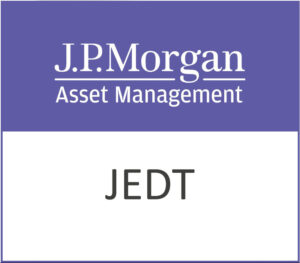Real Estate Credit Investments plc (LON:RECI) is the topic of conversation when Hardman and Co’s Analyst Mark Thomas caught up with DirectorsTalk for an exclusive interview.
Q1: Your recent report sits behind a disclaimer. What can you tell us about that?
A1: It is just the standard disclaimer that many investment companies have. In essence, for regulatory reasons, there are some countries (like the US) where the report should not be read. It is not a simple asset class, and the report should only be looked at by professional/qualified investors.
Q2: You called your piece Experience shows resilience of the model. What can you tell us about it?
A2: The key messages we take from Real Estate Credit Investments’ quarterly investor update and end-March 2021 factsheet are i) mark-to-market (MTM) writedowns in March 2020 proved overly conservative, and RECI has been making recoveries since, ii) with no defaults, RECI’s assets have proved highly resilient (this is no accident, but reflects the different way in which the assets are managed to other lenders, and iii) as expected, RECI’s bond portfolio provided significant liquidity at only a modest cost.
Despite the reasons driving the 2020 discount having all been negated by experience, the shares still trade at a 6% discount to NAV, when, ahead of COVID-19, they were at premium.
Q3: Within the report you call one section What did the market miss in 2020? Quite a bold statement and an interesting one. What did the market miss?
A3: RECI’s shareholders suffered from a double discount: firstly, there was an MTM discount applied to the value of the assets, which has been proved to be overly conservative by the material recoveries seen since; secondly, a further discount was applied to the company, with the share price being below what was already a conservative NAV.
At the time, there was uncertainty over the performance of assets (and so their real value) and liquidity, and the outlook for commercial real estate lending generally. This was perhaps compounded by RECI having certain assets that were perceived to be in higher-risk areas such as in Italy at the start of the crisis.
What the market missed, and has been proved subsequently, is how Cheyne’s risk assessment, controls and management mean that its assets have continued to perform. Actual realised losses were just 1% of NAV, a tiny fraction of what the market built into its double discount.
Q4: And you said there were recoveries proving this point?
A4: Large hits were taken at the start of the crisis, against bonds and mezzanine positions in two housebuilders. Since then, there have been steady recoveries, as the uncertainty has reduced. In eight of the past 12 months there have been recoveries. By end-March 2021, roughly half the original impairments had been recovered on bonds but less than a fifth of the housebuilder write-downs had been recovered and, if you look at the price of listed housebuilders, that market has seen a massive recovery in the past year.
Q5: The yield of over 8% may be especially attractive to investors. How safe is it, and what more can you tell us about the dividend policy?
A5: Its dividend yield is the highest of its immediate peers and above wider peer averages too. Real Estate Credit Investments’ continued to pay a stable dividend of 3p per quarter through 2020. The official policy is 7% of NAV but management wanted to show their confidence by maintaining it through the crisis.
The key issues are how much income is earned and how much credit losses will cost. On income, we outline in our note how new business is being priced at higher yields, and on better covenants than in the past; so that is a big tick. On credit costs, it is all about how risk is assessed, monitored, managed and – critically – what the company does when things go wrong. The only way to be absolutely certain of not losing money is not to lend, but then you make no return. In previous reports, we have highlighted the expertise of the managers (especially in restructuring collections), which is critical at the moment.
We also highlighted how the manager, Cheyne, assesses credit and builds ongoing relationships with a borrower in a way in which a bank cannot. We emphasised the importance of a culture where Cheyne managers “own” the debt and are not simply employees of a lender.
Overall, RECI has policies, practices and a culture that should reduce both the probability of customers defaulting and also losses if they do. You cannot ask for more.







































